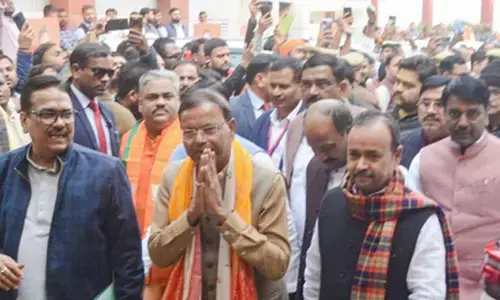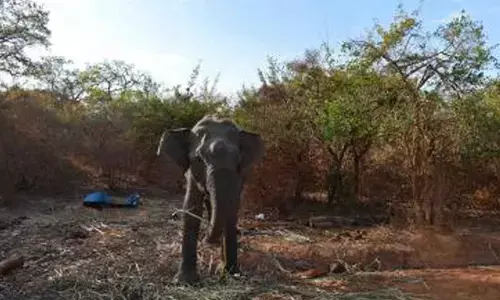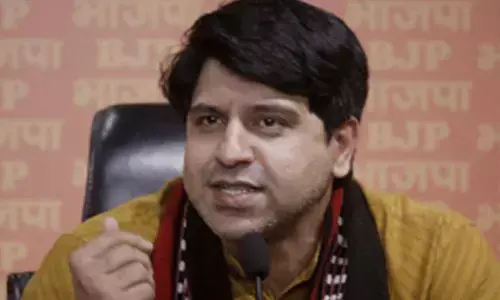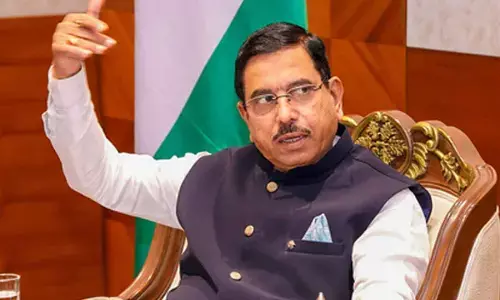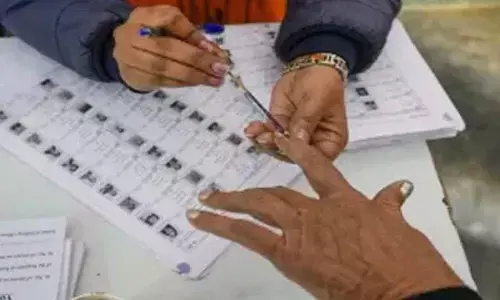Bodily autonomy and sexual rights are integral to development justice

Bodily Autonomy And Sexual Rights Are Integral To Development Justice. The dream of development justice cannot be realized unless governments also recognize bodily autonomy and sexual rights for every human being, especially for those who are marginalized and seldom heard or \'visible\'.
The dream of development justice cannot be realized unless governments also recognize bodily autonomy and sexual rights for every human being, especially for those who are marginalized and seldom heard or 'visible'. If we look closely at the data, it will become evident that women and girls are among those key populations whose rights get violated when it comes to bodily integrity and sexual and reproductive health, and rights. Susmita Choudhary from International Planned Parenthood Federation (IPPF) said that "sexual and reproductive health and rights (SRHR) are not only women's issues but also issues of other constituencies we work with, and different areas we work on, are also linked to SRHR. It is indeed a cross-cutting issue!"
.jpg)
Susmita was moderating a special session before the intergovernmental meeting (Asia Pacific Forum on Sustainable Development - APFSD 2015) opens in Thailand.
Why is SRHR so important to post-2015 agenda?
Malyn Ando from Asian Pacific Resource Centre for Women (ARROW) explained why are SRHR issues so important for development justice and also for post-2015 sustainable development agenda. "SRHR are a set of interconnected human rights related to sexuality and reproduction of a person recognizing international laws, international human rights and consensus documents, and based upon the principles of bodily autonomy and integrity ('my body and my rights'); right of self-determination; equality (amongst men, women, transgender and intersex people); and respect cultural diversity."
Malyn Ando said: "SRHR concerns all human beings. If we cannot control our own bodies, sexualities, or fertility, then we cannot also fully access other rights such as economic, social, and cultural rights. It is about our health, getting information about sexuality and reproduction, and about choosing who we are! Whether we want to be sexually active or not - celibacy is also a valid option - whether two consenting people want to get married or not, have children or not - it is important to have that right to choose, and means to realize these rights, free from coercion or violence."
"Our governments too have an obligation to protect SRHR. SRHR is a critical development issue, and yet lot of gaps remain. In a study done by ARROW in 21 countries in Asia-Pacific, we found very little progress done on SRHR. For example, women are having less children but still they are having more children than they want. The burden of contraception still falls heavily on women - male sterilisation for example has a very poor or negligible uptake. Adolescent pregnancies still remain a challenge. Liberalisation of safe abortion policies has been too slow. More women die from reproductive cancers than child births or during pregnancy, yet our governments are not prepared to address this."
Malyn added: "SRHR is central to achieving gender equality, women’s empowerment and achieve sustainable development. Poverty, disasters, climate change and conflicts are also linked to SRHR. Moreover SRHR is a smart investment for governments!"
Even where 'all looks good', look deeper to see inequities!
Dr Sepali Kottegoda from Women and Media Collective in Sri Lanka agreed: "Ensuring that SRHR services are universally accessible to the whole population and in particular to those living in district with poor health indicators such as the post conflict areas, estate sector and economically under-performing districts is pivotal for equal development within the country. Adolescent birth-rate is very high in Sri Lanka: between 2007-2012 it shot up from 3.7% to 12%. There are young people who are unaware of SRHR services or unable to access SRHR services. This issue comes up because most of the SRHR issues are geared for married or cohabiting couples. Category of single, widowed, separated, divorced, and adolescent women is actually not even a priority. They are not barred from accessing but lot of prejudices or preconceived notions of their sexuality become a major barrier for them to accessing services they need!"
"Abortion is criminalized in Sri Lanka except when mother’s health is in question. However illegal abortion rate is estimated to be 3000 per year or more. If we look at category of people who are going for abortion then these include married people too who were not aware of or not able to access SRHR services. Abortion is also a result of incest and rape - incest is a serious issue in Sri Lanka and rape as well as the country emerged from 30 years of internal conflict in 2009. Violence against women has been a concern especially in conflict areas."
Dr Sepali shared that: "Sri Lanka criminalizes same-sex relationships. Until 1995 it was only male same-sex relationships that were criminalized but in 1995 after penal code reforms where gender equality was seriously integrated, both male and female same-sex relationships got criminalized. So sexual orientation and gender identity is not legally recognized in Sri Lanka."
Migrants workers: SRHR issues seldom get recognized!
Mara Quesada from CARAM Asia (Coordination of Action Research on AIDS and Mobility in Asia) shared how SRHR issues impact migrant people, especially migrant women workers. "Migrant workers are seen only as workers and even as commodities - and not seen as sexual human beings. It is assumed as if health and SRHR are not a priority for them!"
"HIV rates have been alarmingly high among migrant populations. Bangladesh and Sri Lanka continue to have large number of new HIV infections among migrant people. There are range of human rights violations related to SRHR too which migrant workers face: for example there are so many cases where women workers were forced to take contraception or undergo sterilization or abortion when they got pregnant. Even there were cases where migrant workers were forced to take long-acting contraception before taking leave so that they do not get pregnant while on leave and can work when they get back!"
"Mandatory HIV and pregnancy testing (prior to departure from home country and upon arrival in destination country), and related detention and deportation were other major challenges migrant workers face. A pregnant woman who was in jail told me that every week she was whipped for becoming pregnant in destination country. Later upon intervention of Philippines embassy, she could be brought back to her home country."
Mara pointed out that "SRHR and HIV programmes for migrant workers are very limited and often only present in origin countries" so this needs to be addressed in post-2015 development agenda as well.
Rudolf Bastian Tampubolon, a LGBTIQ representative for the Asia Pacific Regional Civil Society Engagement Mechanism (RCEM) around post-2015 process said to Citizen News Service (CNS): "No one left behind slogan means that LGBTIQ people also need to be part of the process of developing post 2015 framework. For LGBTIQ people, most important issue is recognition – how can our other issues be heard if we are not recognized who we are! Policies made by the governments are mostly discriminatory towards LGBTIQ people – there are 76 countries in the world that still criminalize and prosecute LGBTIQ people for their sexual orientation, gender identity and expression (SOGIE). At least 26 countries in Asia Pacific are still criminalizing LGBTIQ people. Countries in Asia Pacific such as Iran and Brunei Darussalam have death penalty for LGBTIQ people. It is only after LGBTIQ people get recognized, we can then speak about social inclusion, environmental inclusion and economic inclusion."
Bastian shared: "Many people think that LGBTIQ people’s issues are only related to health – which is not right. Our issues are also related to access to schools, access to work, access to be involved and engaged in policy making with dignity and non-discriminatory way. As well as when there are natural disasters, we are being left behind in relief work for example. Only when we include sexual orientation and gender identity and expression (SOGIE) in all our policies, then only our relief activities during natural disasters will become gender sensitive and be able to reach out to the most vulnerable ones and address their needs."
Aizhamal Bakashova who works with 'Shazet' in Kyrgyzstan shared with Citizen News Service (CNS): "In Post 2015 sustainable development framework we need to see more goals and indicators that will positively influence women’s situation in central Asia - not just limited to social protection or welfare! For example, women rights are not just issues of domestic violence - as there are bride kidnappings going on of girls who get kidnapped from the street or schools or forced marriages happening - or unregistered marriages which make access to land and access to justice even more difficult - these issues need to get addressed in the development agenda."
"SRHR is not just about illiteracy – rather it is about right of women and adolescent girls to have correct information about reproductive and sexual health is violated! It is also about infrastructure and accessibility of SRHR services for those-in need. Post-2015 development agenda should ensure that!"
Bobby Ramakant, Citizen News Service – CNS
- Shared under Creative Commons (CC) Attribution License








